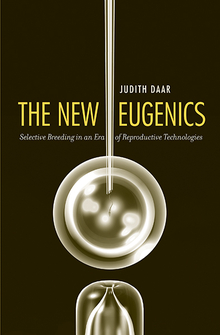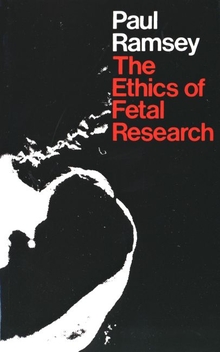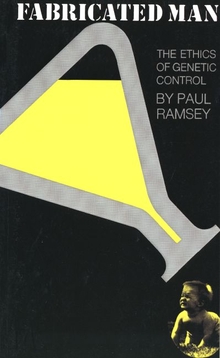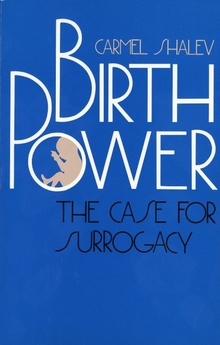The New Eugenics
WARNING
You are viewing an older version of the Yalebooks website. Please visit out new website with more updated information and a better user experience: https://www.yalebooks.com
Selective Breeding in an Era of Reproductive Technologies
Judith Daar
A provocative examination of how unequal access to reproductive technology replays the sins of the eugenics movement
Eugenics, the effort to improve the human species by inhibiting reproduction of “inferior” genetic strains, ultimately came to be regarded as the great shame of the Progressive movement. Judith Daar, a prominent expert on the intersection of law and medicine, argues that current attitudes toward the potential users of modern assisted reproductive technologies threaten to replicate eugenics’ same discriminatory practices.
In this book, Daar asserts how barriers that block certain people’s access to reproductive technologies are often founded on biases rooted in notions of class, race, and marital status. As a result, poor, minority, unmarried, disabled, and LGBT individuals are denied technologies available to well-off nonminority heterosexual applicants. An original argument on a highly emotional and important issue, this work offers a surprising departure from more familiar arguments on the issue as it warns physicians, government agencies, and the general public against repeating the mistakes of the past.
Eugenics, the effort to improve the human species by inhibiting reproduction of “inferior” genetic strains, ultimately came to be regarded as the great shame of the Progressive movement. Judith Daar, a prominent expert on the intersection of law and medicine, argues that current attitudes toward the potential users of modern assisted reproductive technologies threaten to replicate eugenics’ same discriminatory practices.
In this book, Daar asserts how barriers that block certain people’s access to reproductive technologies are often founded on biases rooted in notions of class, race, and marital status. As a result, poor, minority, unmarried, disabled, and LGBT individuals are denied technologies available to well-off nonminority heterosexual applicants. An original argument on a highly emotional and important issue, this work offers a surprising departure from more familiar arguments on the issue as it warns physicians, government agencies, and the general public against repeating the mistakes of the past.
Judith Daar is the interim dean and professor of law at Whittier Law School and a clinical professor of medicine at the University of California, Irvine, School of Medicine. She lives in Rancho Palos Verdes, CA.
"Whether it is examining the long history of humankind’s struggle with infertility and disputes over eugenics, engaging with the most current debates, or contextualizing the struggles of those seeking to access reproductive technologies, this from one of world’s leading scholars is a must-read for those in the field."—Glenn Cohen, Harvard Law School and co-editor of The Oxford Handbook of U.S. Healthcare Law
“With deep knowledge, sympathetic insight, and lucid writing, Judith Daar shows how the current system of assisted reproductive technology fails so many with correctible reproductive problems. Her powerful book is a reminder of the importance of a wide vision in bringing new medical technologies to persons in need.”—John A. Robertson, Author of Children of Choice: Freedom and the New Reproductive Technologies
"Complex and reflective, this book exposes the sorry state of access to infertility care. One is hard pressed to think of a more compelling treatise on an all-American case of social injustice."—Eli Y. Adashi, MD, MS, The Warren Alpert Medical School, Brown University
“An important and perspective-changing book, switching the focus on 'eugenics' to how the current U.S. reproduction industry works to exclude from parenthood those who aren’t well-off, white, a heterosexual couple, or able-bodied.”—Henry T. Greely, Stanford University, author of The End of Sex and the Future of Human Reproduction
“A must-read for students and scholars of reproduction in the medical humanities, bioethics, genetic counseling, and medical sociology.”—Choice
“Compellingly documents how the eugenics movement of old has far from disappeared. Rather, the eugenics methods have evolved hand in hand with advances in medicine and reproductive technology. . . . thought provoking, insightful and well worth reading.”—Allison K. Hoffman, Journal of Law and the Biosciences
“Nothing short of exhilarating. . . . One could hardly ask for more.”—Eli Y. Adashi, Journal of Law, Medicine and Ethics
"Daar's eugenics trope offers an illuminating way to appraise [reproductive] regulation's ethical and constitutional infirmities. . . . A promising opportunity to shift the focus in that debate."—Courtney Cahill, Jotwell
ISBN: 9780300137156
Publication Date: February 21, 2017
Publication Date: February 21, 2017
288 pages, 6 1/8 x 9 1/4








